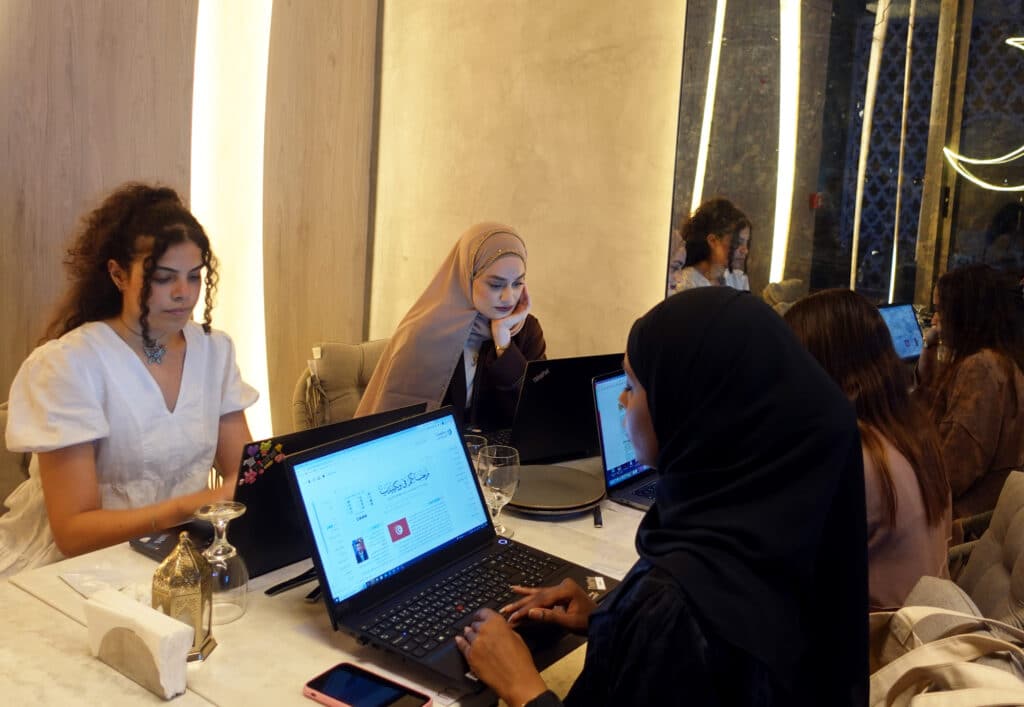Ramadan is a significant time of year for millions of Muslims worldwide, including many employees in workplaces across the UK and the US. In 2025, Ramadan begins on the evening of Friday, 28th February, and will last for 30 days, concluding on Sunday, 30th March, followed by the celebration of Eid al-Fitr. During this holy month, many Muslim employees will be fasting from dawn until sunset, balancing their religious observances with their professional commitments. For HR teams and business leaders, understanding how Ramadan in the workplace affects employees is key to fostering an inclusive and supportive company culture.
Implementing thoughtful HR practices can ensure Muslim employees feel respected and valued while maintaining productivity across the business.
Understanding Ramadan and Its Workplace Impact
Ramadan is a period of fasting, prayer, reflection, and community. Observing Muslims refrain from eating, drinking (even water), smoking, and other physical needs during daylight hours. Many will wake up early for Suhoor (pre-dawn meal) and break their fast at Iftar (sunset meal). In addition to fasting, there is an increased focus on prayer and charitable giving.
For the workplace, fasting can lead to fatigue, lower energy levels, and shifts in productivity patterns, particularly in the late afternoon. Evening commitments may also be affected, as many will want to break their fast with family or at the mosque. Being aware of these factors and adapting workplace policies can make a huge difference in supporting employees observing Ramadan.

HR Practices to Support Employees During Ramadan
1. Encourage Openness and Communication
Not every Muslim employee will observe Ramadan in the same way, so fostering an open and supportive environment is essential. HR teams should encourage one-on-one conversations where employees feel comfortable discussing their needs during Ramadan. A simple check-in can go a long way in ensuring they feel supported. This is a big opportunity for leaders to express their support in advance and discuss the needs of their employees.
2. Be Flexible with Time Off Requests
Many employees may request annual leave for Eid al-Fitr, the festival that marks the end of Ramadan. Eid celebrations can last 1–5 days, so expect leave requests around 30th March – 4th April. Planning ahead and being flexible with leave approvals will help employees celebrate without stress.
3. Offer Flexible Working Hours
Where possible, allow for adjusted start and finish times to accommodate fasting employees. Some may prefer to start work earlier in the day when they have more energy, while others may benefit from shorter lunch breaks in exchange for an earlier finish. Remote working or hybrid models can also help employees manage their energy levels more effectively.

4. Schedule Meetings Earlier in the Day
Fasting employees often have higher energy levels in the morning compared to late afternoon. If high concentration levels are needed from your employees, then don’t expect this of your people after lunchtime. Where possible, schedule important meetings, brainstorming sessions, or training earlier in the day to ensure full engagement.
5. Educate Line Managers and Colleagues
HR teams should provide brief training or awareness sessions for managers and colleagues about Ramadan in the workplace. Simple things like understanding why a colleague may be skipping lunch or feeling more tired than usual can promote inclusivity and prevent misunderstandings. It’s possible that many employees are unaware of the importance of Ramadan to their Muslim coworkers. To support everybody’s learning, it’s a good idea to have open discussions and sharing reading materials.
6. Create a Quiet Space for Prayer
Many Muslim employees pray multiple times a day, including during work hours. Providing a dedicated quiet space for prayer can make it easier for employees to observe their religious practices without disruption. This is something that your workplace could implement all year round and not just during Ramadan.

7. Refrain from Asking Fasting Employees to Attend Lunch Catch-up’s
It’s always good to encourage employees to discuss Ramadan with their Muslim coworkers. This is essential to avoiding awkward situations like offering water or other beverages to coworkers who are fasting or accidentally making insensitive comments .A simple yet often overlooked consideration is avoiding scheduling lunch meetings or coffee catch-ups where food and drink are central. Fasting employees will appreciate the thoughtfulness of having catch-up’s at other times when food & drink are not present.
8. Be Mindful of Social and Food-Related Events
Workplace culture often includes Friday drinks, team lunches, or networking events – but during Ramadan, fasting employees won’t be able to participate. While they should always feel welcome, HR teams can show consideration by not making attendance compulsory and offering alternative ways to engage.
9. Recognize and Celebrate Eid
Eid al-Fitr is a major celebration marking the end of Ramadan. A simple email or company-wide recognition can go a long way in making Muslim employees feel valued. Consider sending a company-wide greeting such as “Eid Mubarak” or planning a small celebration for those who wish to take part.

The Business Benefits of Inclusive Ramadan Practices
When businesses embrace Ramadan in the workplace, it reinforces their commitment to diversity, equity, and inclusion (DEI). A supportive environment leads to higher employee satisfaction, stronger engagement, and improved retention rates. When employees feel valued, they are more likely to remain loyal and productive within the company.
HR teams play a crucial role in fostering this inclusive culture, ensuring that workplace policies align with the diverse needs of employees. Whether through flexible working arrangements, education, or small but meaningful considerations, a company’s efforts during Ramadan can leave a lasting positive impact.
Final Thoughts
As Ramadan 2025 approaches, now is the perfect time for HR teams to review their policies and practices. By implementing thoughtful Ramadan-friendly HR initiatives, companies can ensure that Muslim employees feel supported, respected, and empowered to bring their best selves to work.
If you’re looking for more ways to create an inclusive and rewarding workplace, explore Virgin Incentives’ experience-based rewards – an inclusive form of recognition which is perfect for celebrating milestones, rewarding employee achievements, and showing appreciation in meaningful ways. Get in touch switch us below to find out more:

